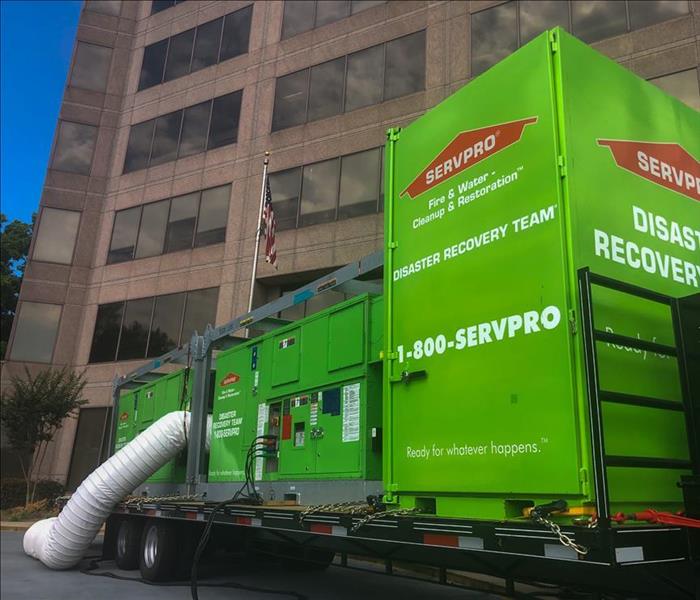Flood Aftermath: Avoiding Mold
9/13/2021 (Permalink)
During storm season, your home in Buford, GA, is especially vulnerable to flooding. In addition to all the practical remediation steps for water damage, another problem to look out for is mold growth. It doesn't take long for mold patches to form when you have standing water. Knowing when to prepare for the possibility of fungus growth and the actions to take may help you avoid the problem.
Flooding Risk
Storms that produce a lot of rain also bring a higher risk of flooding. When there's more water than an area can hold or disburse, you may see some flooding in your home. Some areas are at higher risk than others:
• Areas near rivers and streams, especially if the terrain is hilly
• Densely populated areas, particularly those with poor drainage systems
• Locations that experience huge snowdrifts that eventually melt and runoff
• Places that experience sudden, intense rainfall
• Coastal areas at risk during hurricane season
If you live in any of these areas, your home is more likely to flood. If the flood is due to a natural disaster that affects a lot of people, you may have to take some measures into your own hands to avoid mold growth.
Mold Risk
Mold can attach and start to grow as soon as 24 hours after water damage has occurred. This process is accelerated if the water contains bacteria, as floodwater tends to do, since mold feeds on organic matter. Contaminated water is like a smorgasbord for mold, providing all the things it likes in one substance. All it needs is a surface to land on, and the fungus can begin to flourish. To discourage growth, guard your home against flooding. Keep drainage systems clear, and make sure your foundation is in good shape. If your home does flood, call water remediation specialists to alleviate the problem as soon as possible.
Prevention and timely remediation are the keys to avoiding mold growth. Your vigilance in this matter can keep your home from having mold damage on top of water damage.





 24/7 Emergency Service
24/7 Emergency Service
